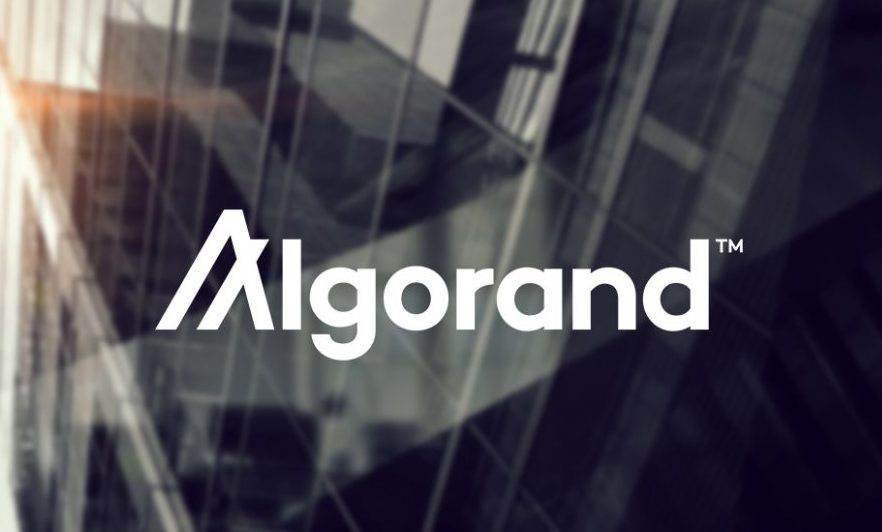What Exactly Is Algorand Blockchain:
Algorand blockchain is a scalable, entirely permissionless and decentralized Blockchain whose sole goal is to create a transparent system of blockchain where everyone can achieve success by making use of decentralized projects and applications.

Algorand is especially unique in the sense that it tends to solve the Bitcoin trilemma; decentralization, security and Bitcoin’s well known scalability problem.
Algorand is a Boston-based permissionless proof-of-stake (PoS) protocol with open partucupation, scalability, security and transaction finality.
Algorand has a native token (ALGO) which is used as a transfer of value on the network. Algorand uses a pure proof-of-stake (Pure PoS) and pseudorandom functions to prevent malicious attackers (hackers) from hacking the network.
Its Founder:
Algorand is founded by MIT professor, Silvio Micali who is a recipient of Turning Award (the highest award for computer scientists) with outstanding research he did in cryptography, zero-knowledge, pseudorandom generation, secure protocols and mechanism design.
Silvio Micali is also the Co-inventor of probabilistic encryption, zero technology proofs, verifiable random functions and many of the protocols that are the foundations of modern cryptography.
How Algorand Plans to Overcome Blockchain Trilemma:

Some years ago, Vitalik Buterin, the founder of ethereum proposed that a blockchain can have maximum of two out of three properties; decentralization, scalability and security.
Currently, transactions on the blockchain are a bit slow because of the blockchain trilemma.
Buterin believes at a fundamental level that a blockchain network can only achieve two out of three creatures at a time.
Scalability issues on most blockchains have been traced to occur as a result of blockchain trilemma.
Most cyptocurrency projects cannot literarily handle high numbers of transaction and still focusing on network decentralization and security.
In the quest to overcome this, Algorand used a pure proof-of-stake (pure PoS) consensus mechanism. This mechanism make use of an approach that is different from other PoS mechanisms.
For example, instead of requiring 100% consensus (voting) from all validation parties (voters), Algorand opted in for two-third majority consensus.
This is an outstanding practice that prevents hacking the system, in the sense that, if you want to attack algorand, you will need to purchase more than one third of the total supply of algorand which is exclusively expensive.
Also, if you have such large amount of supply with algorand, then you won’t want to see their downfall right? Or else you’re going down together. What a perfect strategy!.
Algorand also planned to enable to enable fast transaction time by enabling fast transaction finality through cryptographic sortition.
With all these strategies, Algorand will definitely overcome the blockchain trilemma.
The process of confirming blocks on Algorand involves two stages which are; the proposal stage and voting stage.
During the proposal stage, a token is randomly selected and its ownersl suggests the next block to be confirmed. At the voting stage, 1000 random token owners are selected to form a committee that approves the proposed block.
Algorand Native Token (Algo):
ALGO is the native token of Algorand blockchain. Currently ALGO market cap is 261.74 million dollars and 24 hours ALGO volume is currently 34.30 million dollars.
It has a market cap rank of 48 with a circulating supply of 803,088,849 and maximum supply of 10,000,000,000 (as at today).
ALGO is traded on 41 exchanges with the top exchanges being Binance, Coinbase and Bit-Z. Binance has the highest exchange volume of 39%, Coinbase Pro with 8%, Bit-Z with 6%, CoinEx with 6% and others sharing the remaining percentage.
Uses of Algorand Token (Algo):
Algorand token (ALGO) is the native token of Algorand blockchain. Its major uses include:
- Ecosystem growth: Algorand team intend to aid and accelerate their ecosystem growth by making use of token from time to time so as to encourage projects building.
- Algorand founder token is used to participate in consensus and assist in securing the network.
- Used in staking: Algorand token (ALGO) is used for staking and participating in the Algorand platform as a block proposer by merely switching their address from offline to online on the Algoexplorer. All you need to do is to stake ALGO token and have the nodes online.
Algorand supports two types of nodes; the relay and participation.
The relay node are hardware intensive and also don’t participate in voting and decision making, instead, they are used for communication between participation nodes.
Algorand standard Assets (ASA) brings about easy token creation and issuance directly on Algorand main chain.
They also support numerous numbers of different range of tokens, including fungible and non-fungible tokens. Fungible tokens are similar to ERC-20 and also non-fungible tokens are used for digital collectibles.
I think with the few things written above, you’re able to get to know what Algorand is all about, how it plans to tackle blockchain trilemma, its native token (ALGO) and uses of its native token (ALGO).
Thanks for reading. Check out my other article on Algorand and Finance.
Written By Yusuf Muhammed—Algorand Ambassador.
Discover more from DiutoCoinNews
Subscribe to get the latest posts sent to your email.














